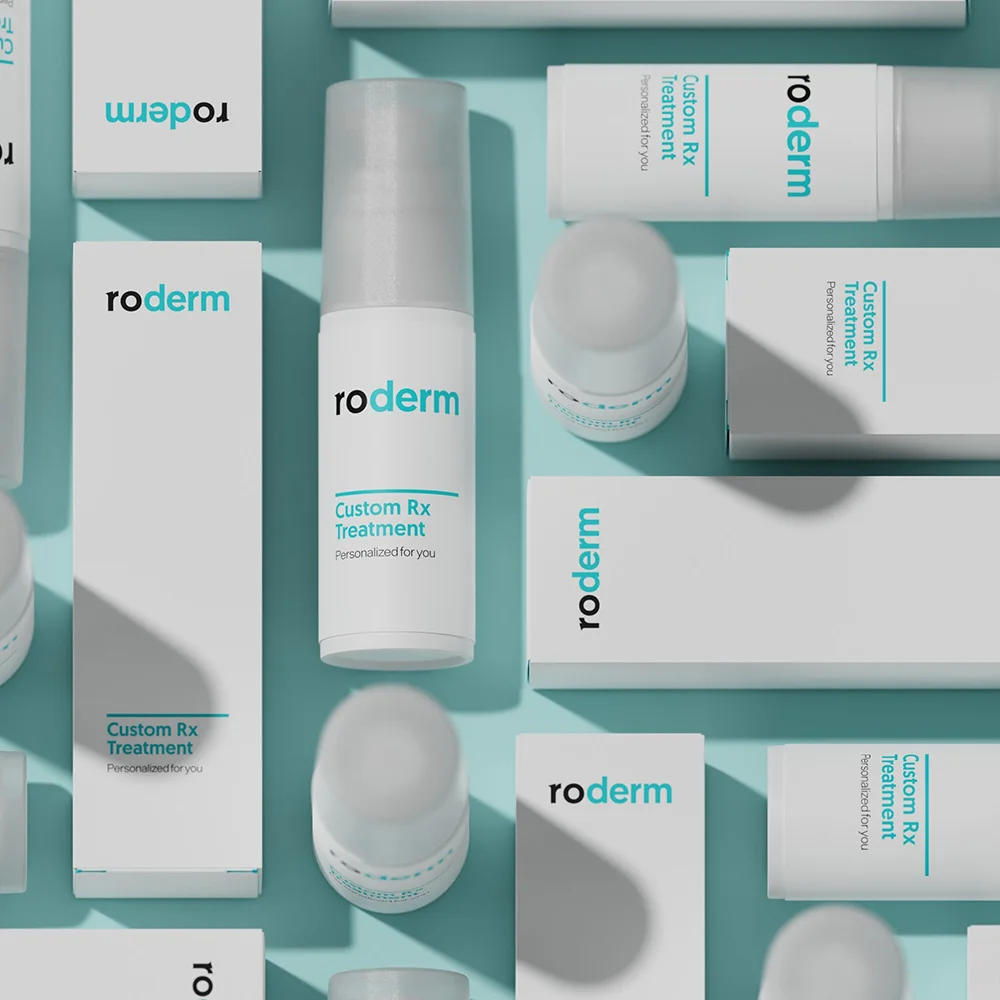Here's what we'll cover
Here's what we'll cover
Here's what we'll cover
Sagging and loss of volume are some of the hallmarks of aging. One of the main culprits is the loss of hyaluronic acid. So, why is this molecule so crucial in skin appearance? Because of its impressive ability to hold onto water and moisture. Read on to learn more about hyaluronic acid and its relationship to your skin.
What is hyaluronic acid?
Hyaluronic acid (HA), sometimes called hyaluronan, is naturally present in the skin and belongs to a class of compounds called glycosaminoglycans. It functions as a lubricant for the joints and eyes, as an anti-inflammatory that aids in wound healing, and is one of the key molecules associated with skin moisture (Bukhari, 2018).
The reason: it's super-super-absorbent. Hyaluronic acid acts as a humectant, meaning it draws in moisture and hydrates the skin. When your skin loses moisture, it looks dry, weathered, and wrinkled. Hyaluronic acid helps skin look younger and plumper.
Our skin's natural storehouse of hyaluronic acid declines as we get older. Why? It's a combination of the body's natural aging process and environmental factors such as smoking and sun damage. These factors cause the skin to lose moisture, leading to recognizable signs of aging, such as a loss of elasticity, fine lines, and wrinkling (Bukhari, 2018).
Benefits of hyaluronic acid
The primary benefit of hyaluronic acid is that it helps lock in hydration. Dehydrated skin is low in water content and can look rough, dry, flaky, and dull. Adding moisture to your skin's surface can soothe this dryness, making your skin less prone to injury. In terms of your face, using a skincare product containing hyaluronic acid may provide anti-aging benefits, like "plumping up" areas that are sunken or wrinkled (Walker, 2021).
Moisture is not just crucial for your skin's appearance; it also plays a role in its ability to protect you from infections. One of the main jobs of your skin is to act as a barrier against infectious or environmental sources. When your skin is dry, it cannot perform this barrier function as well, and you are at higher risk for infections or other skin problems (Harwood, 2021).
Uses for hyaluronic acid
Hyaluronic acid has several FDA-approved uses, but the ones related to aging changes and volume loss include (Walker, 2021):
Filling facial wrinkles
Improving facial volume loss and cheek augmentation
Correcting aging-related volume loss in hands
Lip augmentation
Cosmetics and other skincare products often use hyaluronic acid to combat skin dryness and aging.
Forms of hyaluronic acid
Several different types of over-the-counter skincare products contain topical hyaluronic acid. They are often incorporated into skincare routines for hydrating dry skin or anti-aging—these include moisturizers, sheet masks, eye creams, and hyaluronic acid serums.
Depending on the product, you may see different forms of hyaluronic acids, including sodium hyaluronate (salt form of HA). It also comes in various molecular weights, which refers to the size of the molecules. Larger molecules can't get through the skin barrier as easily as smaller molecules (Bukhari, 2018).
Low molecular weight hyaluronic acid (or HA composed of smaller molecules) is used for applications that require deeper skin penetration (into the dermis of the skin). This type of HA includes dermal fillers, hyaluronic acid injections used to "fill in" fine lines and wrinkles and augment lost volume (Walker, 2021). Brand names of these hyaluronic acid fillers include Restylane and Juvederm.
Scientists are also looking into oral (pill) forms of hyaluronic acid. One small study looked at women who took hyaluronic acid supplements for 12 weeks. Those who took HA had improved skin shine and suppleness compared with those who received the placebo. However, more research is needed in this area (Oe, 2017).
Potential side effects of hyaluronic acid
Hyaluronic acid is a natural substance in the skin, so HA products tend to have a low incidence of side effects and are safe for most people. This is one reason HA is often used in over-the-counter cosmetics.
The injectable forms of HA carry an increased risk of side effects, including bruising, pain, itching, redness, and swelling at the injection sites.
If you experience side effects while using a hyaluronic acid product, discontinue use, and consult a healthcare provider.
DISCLAIMER
If you have any medical questions or concerns, please talk to your healthcare provider. The articles on Health Guide are underpinned by peer-reviewed research and information drawn from medical societies and governmental agencies. However, they are not a substitute for professional medical advice, diagnosis, or treatment.
References
Bukhari, S., Roswandi, N. L., Waqas, M., Habib, H., Hussain, F., Khan, S., et al. (2018). Hyaluronic acid, a promising skin rejuvenating biomedicine: A review of recent updates and pre-clinical and clinical investigations on cosmetic and nutricosmetic effects. International Journal of Biological Macromolecules , 120 (Pt B), 1682–1695. doi: 10.1016/j.ijbiomac.2018.09.188. Retrieved from https://pubmed.ncbi.nlm.nih.gov/30287361/
Harwood, A., Nassereddin, A., Krishnamurthy, K. (2021). Moisturizers. [Updated June 2, 2021]. In: StatPearls [Internet]. Retrieved on Oct. 5, 2021 from https://www.ncbi.nlm.nih.gov/books/NBK545171/
Oe, M., Sakai, S., Yoshida, H., Okado, N., Kaneda, H., Masuda, Y., et al. (2017). Oral hyaluronan relieves wrinkles: double-blinded, placebo-controlled study over a 12-week period. Clinical, Cosmetic and Investigational Dermatology , 10 , 267–273. doi: 10.2147/CCID.S141845. Retrieved from https://www.ncbi.nlm.nih.gov/pmc/articles/PMC5522662/
Walker K, Basehore BM, Goyal A, et al. (2021). Hyaluronic acid. In: StatPearls [Internet]. Treasure Island (FL): StatPearls Publishing; 2021 Jan-. Retrieved from https://www.ncbi.nlm.nih.gov/books/NBK482440/ .






